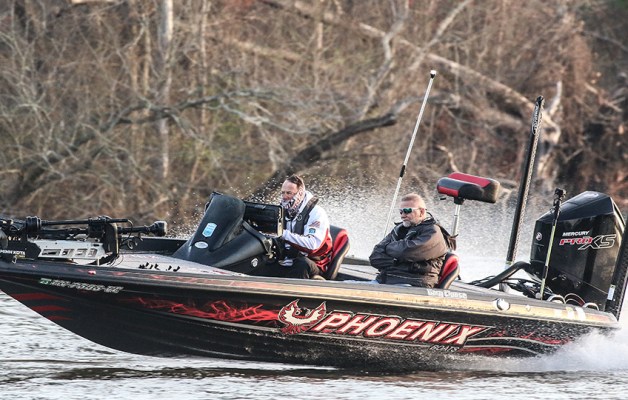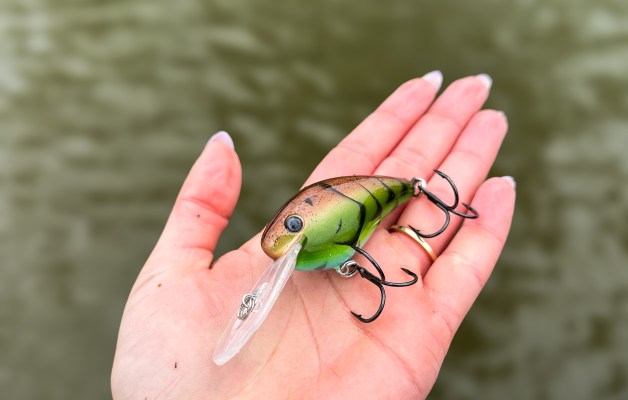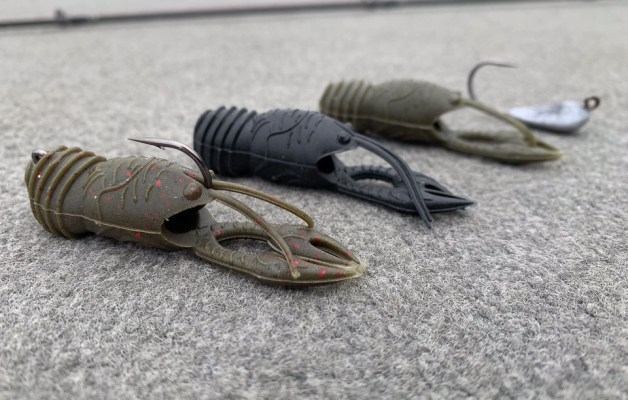When fans look at all the wrapped boats at a Bassmaster Elite Series event, it’s probably easy for them to assume that everything inside those wraps is always neat, orderly and working as it should. We do work hard to keep our boats and ourselves in top operating form, but by this point in the season, I’ve put my equipment through a lot of “testing.”
There’s really no getting around it. When you fish for a living, your office is your boat and all your tools and equipment have to endure long hours of work. For tournament anglers, your gear often has to perform in rough conditions and challenging environments.
That’s why I’ve disciplined myself to develop a system for checking my equipment right after every tournament. The last thing I want to do is roll into the next tournament town, head out for the first day of practice and realize I have an issue with my equipment.
We talk about rod and reel maintenance a lot, so let me address the bigger picture – my boat. Several weeks on the road puts a lot of miles on my trailer, so I walk the entire length on both sides to look for any damage, loose nuts or anything else that poses potential problems. I check the tire pressure, inspect the treads and make sure the spare is ready to go.
As for the outboard, I remove the prop and make sure no line or debris is in there, and I tighten all the transom bolts and add grease wherever needed. I give the trolling motor a similar inspection by making sure the mount is tight and that the prop is clear.
I then walk the boat’s perimeter and look for anything that catches my eye. Sometimes little things like the rub rail will come lose, and if it needs tightening, I tighten it.
There are many more little things I look at and physically examine, but basically, I try to stay on top of my equipment and make sure it’s all ready to go. A couple of screws can save you from breaking or losing something.
Let me point this out, though. This kind of inspection is not just for the time between tournaments. Any time you’ve been fishing in really rough water, you’re going to have some things loosen up. You just have to anticipate that after spending some time in this situation, you’re going to need to tighten some bolts.
In addition to this routine inspection and maintenance, I always make it a priority to keep myself ready to handle any unexpected mishaps that may occur on the water. To do so, I carry a set of tools that’ll tighten every piece of hardware on and in my boat.
On top of that, I have a good selection of quick-fix items to get me through a tough spot until I can get the proper repair. Zip ties will fix all sorts of problems. I also carry wire connectors, electrical tape, extra hose clamps, etc.
It takes a while to build up this kind of tool and accessory kit, but time on the water will show you what you need. When you’re first starting out, things happen and you don’t always have what you need. But you learn as time goes by and you add a little bit each season. Before you know it, you’re pretty well equipped to handle most anything you face.
Fortunately, I haven’t really had any crazy repair needs on the water, but all that goes back to
maintaining everything beforehand. I have had to reconnect a transducer to my trolling motor after knocking it off in shallow water. A couple of zip ties and some electrical tape have allowed me to get through the day more than once.
That’s not lack of maintenance, that’s just the way I fish. You’ll see some guys with the skeg on their engine and trolling motor look as nice as when they bought them, but that’s not me.
My boat often shows the effects of close-contact fishing, but that’s just my style. I don’t abuse it, I use it. I like to get in close and fish aggressively, so I bump rocks and stumps and I have to be prepared for those things.
In some cases, situations beyond your control arise and being prepared means the difference between a delay and a lost day. For example, on a TVA lake, I recently got into a trot line and had to go to the bank to remove it. In my tool kit, I had not only the prop wrench, but a sharp knife to cut away the line and a block of wood to pin the prop and ensure a good tightening.
I think all this is important not only for a professional fisherman, but also for anybody who wants to get out on the lake and enjoy a day of fishing. The biggest thing to consider is that five minutes of maintenance will save you hours of lost time on the water.





